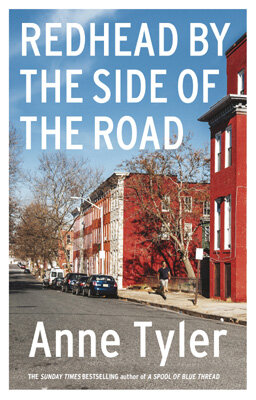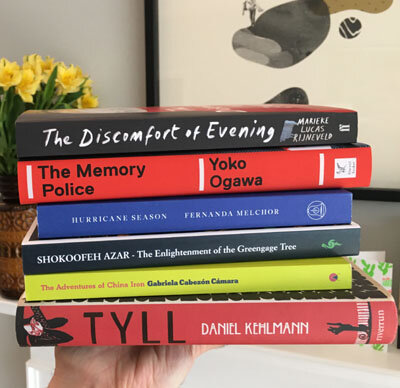Why Shakespeare? In Maggie O’Farrell’s “Hamnet” the author uses her considerable talent for mapping the emotional terrain and intimate relationships of her contemporary characters over a long period of time to write a historical novel about the plague-ridden reality of late 16th century England and the death of Shakespeare’s adolescent son Hamnet. Four years after the boy’s death the Bard wrote ‘Hamlet’, a name that was used interchangeably with Hamnet at the time. Given we know only a slender amount about Shakespeare’s life and he wrote nothing of his personal grief, it’s irresistible to speculate on what motivated him to immortalize his son’s name in a play which went on to be one of the most quoted literary works in the English language. However, rather than portray Shakespeare’s thoughts and feelings, O’Farrell instead focuses on the lives of his family: Shakespeare and Agnes’ hastily arranged marriage, the illness of Hamnet’s twin sister Judith, Hamnet’s sudden death and the devastating grief which followed. This is powerfully rendered, beautifully written with evocative historical details and I enjoyed it immensely but…
I felt like something was lacking. A problem might be in my expectations for this novel which has been much-hyped and lauded. It’s been shortlisted for the Women’s Prize, tipped for the Booker and a prominent review ended by simply stating “this is a work that ought to win prizes.” Publicity for the book describes it as “the heart-stopping story behind Shakespeare’s most famous play.” But the novel tells us very little about Shakespeare’s motivation or influence for writing the play beyond what I’ve already described. So I feel that if O’Farrell uses this as a premise her fiction needs to converse with and expand our understanding of Shakespeare’s writing and his literary stature by imaginatively inhabiting his reality. However, Shakespeare is very much a periphery character who is emotionally and physically absent from his family in Stratford while he pursues his dramatic work in London. Of course, this was no doubt the reality. But if we’re not going to get Shakespeare’s perspective or a feeling for the man himself why include him as a character or focus on this central storyline?
Instead, O’Farrell inventively and movingly imagines the life of Agnes as someone with healing powers and quasi-psychic abilities who frequently gathers flowers and herbs to concoct healing mixtures for many of the locals. It’s remarked that “Agnes is of another world. She does not quite belong here.” She’s an entirely-convincing, fully rounded character who is strong and full of heart. I found it very touching how she’s hampered with feelings of guilt about her son’s fate even though she couldn’t have predicted the outcome of his illness or prevented his death. Also, her ambivalent feelings about her husband are a poignant and realistic depiction of a relationship. She’ll never want to see him again one moment and then another moment will feel achingly close to him. She also recognizes that his family and life in Stratford could never be enough for him: “She can tell, even through her dazed exhaustion, even before she can take his hand, that he has found it, he is fitting it, he is inhabiting it - that life he was meant to live, that work he was intended to do.” All of this detail and characterization is excellent but it could be about any family with an absent husband/father.
Shakespeare looms large in our esteem as probably the greatest writer in Western literature and there’s a prolific amount of biographical literature based on relatively few facts making the Bard seem more mythical than historical. Therefore, O’Farrell’s novel feels somewhat like fanfiction that imaginatively and powerfully builds a domestic universe out of the slenderly-known central players in his life. It makes an important statement by naming these figures and conspicuously not naming Shakespeare at all in the novel – he’s only ever referred to by his status as either “the husband”, “the tutor” or “the father”. Perhaps it is partly O’Farrell’s purpose in writing this book to state that the man was merely mortal and his reality was probably as ordinary as his stark and plain writing room that we get a glimpse of late in the novel. That’s perfectly fine. But…
While reading this novel I kept thinking of “Lincoln in the Bardo” and how much Saunders dynamically builds on both our historical and imagined understanding of Abraham Lincoln as a legendary political figure from American history. As with any prominent figure, it shows how he had to balance his personal reality with his public reputation. But “Hamnet” shows us almost nothing about Shakespeare’s conflict except why he’s almost entirely absented himself from family life: “He sees how he may become mired in Stratford forever, a creature with its leg in the jaws of an iron trap, with his father next door, and his son, cold and decaying, beneath the churchyard sod.” But even before Hamnet’s death he rarely visited his family. A writer who feels like they can’t simultaneously maintain a family and professional life is an interesting subject, but his feelings on this aren’t explored either. The most moving portrait of Shakespeare in this novel comes when he tries to engage Agnes in talking about the flora she gathers rather than discussing their son’s death and Agnes resolutely ignores him. Otherwise, I was left as surprised and confused as Agnes about why Shakespeare named his play after his son – other than a fairly obvious psychological interpretation for his motivations. This left me feeling somewhat deflated at the end of the novel.
Given our current circumstances, I also have to note the bizarre coincidence that this novel focuses so much on the effects of a pandemic. It describes in detail the symptoms the plague has on the body and the way measures were taken to try to contain the illness. There are references to theatres needing to periodically close because of it. There’s also an imaginative and impressive section which describes the journey of the illness and how is spreads through fleas from a young sailor to a glass craftsman and how it finally comes to infect a member of Shakespeare’s family. It’s a strange experience reading a novel whose central subject matter becomes surprisingly topical. I also want to stress how much I enjoyed this excellent novel and I’m not surprised it has many enthusiastic fans, but I just wasn’t as impressed as some other readers have been.

















